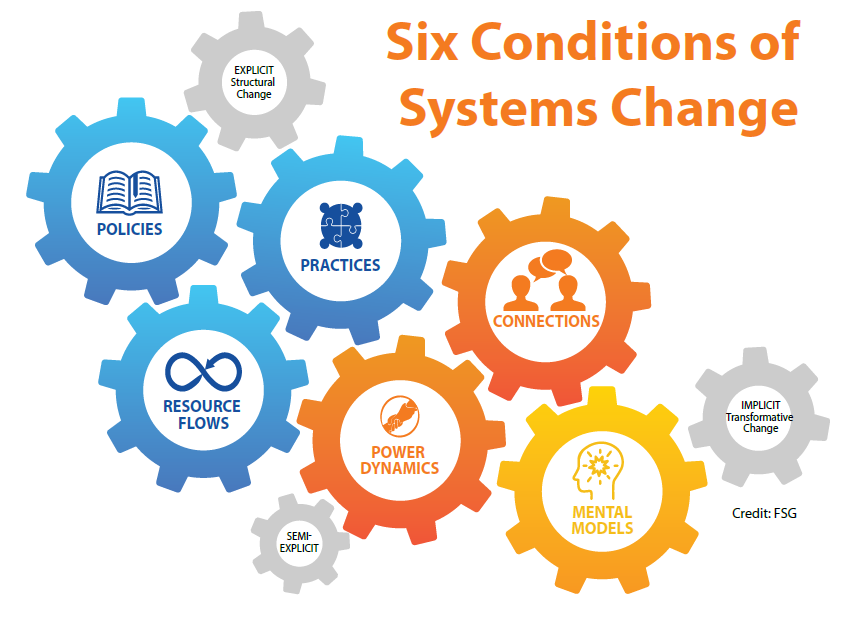The Office of Children’s Mental Health (OCMH) supports Wisconsin’s children in achieving their optimal social and emotional well-being. Our charge is to study, recommend strategies, and coordinate initiatives to improve integration of children’s mental health services across state agencies. OCMH was created in the 2013-15 biennial budget, began operating in 2014, and celebrated its 10th Anniversary in 2024. We report directly to the Governor, but receive administrative support from Department of Health Services.
Our strategic focus is
youth belonging and voice. Our goal is straightforward: if youth feel a sense of belonging and feel they are heard, their foundation will be strong, and they will be better prepared to build relationships as they move through life. Towards that end, we convene people and organizations to join us in increasing youth belonging, amplifying youth voice, and improving children's mental health.
Our Values: Collaborative across systems · Data driven · Family and youth guided · Promote inclusivity and equity among all stakeholders
Our Vision: Wisconsin’s children are safe, nurtured and supported to achieve their optimal mental health and well-being. Systems are family-friendly, easy to navigate, equitable, and inclusive of all people.
Foundational to our Work
There are three foundational pillars our office is built on:
Systems Change
Lived Experience
Research and Data
Systems Change
 OCMH's goal for families navigating the children's mental health systems in Wisconsin is that they know where to go and get the help they need. Too often, however, we hear that families don't know where to start, that the system is complicated, and families get discouraged with long wait times and getting a diagnosis. We want systems to work for our families and children.
OCMH's goal for families navigating the children's mental health systems in Wisconsin is that they know where to go and get the help they need. Too often, however, we hear that families don't know where to start, that the system is complicated, and families get discouraged with long wait times and getting a diagnosis. We want systems to work for our families and children.
Towards that end, we bring people from all parts of children's mental health together to focus on improving the integration of children's mental health services in Wisconsin. Centered in those discussions is the voice of lived experience – parents and caregivers of children with mental health challenges and the youth themselves (see more below on lived experience).
OCMH resources for families navigating the children's mental health system:
Lived Experience - Youth Voice
We firmly believe that in order to transform systems we must partner with young people who bring their voice and lived experience to the table. Their understanding of youth mental health challenges and services is invaluable to our work.
By including youth voice in system change efforts we can help tear down barriers to create a more equitable and inclusive landscape for children’s mental health in Wisconsin.
Research and Data
Data drives our work. We track key indicators, review data for understanding and direction, and publish a number of valuable data-focused resources:
-
Child Well-Being Indicators –
presents data on 41 well-being factors that cover clinical, social, economic, and individual health categories.
-
Fact Sheets – periodic two-page informational pieces take a deep dive into a tropic relevant to children’s mental health and offer actionable recommendations.
-
Key Facts in Youth Mental Health Snapshot – a snapshot of the key challenges facing Wisconsin's youth.
-
Data Bites – offers bite-sized information in a visual format on individual key children's mental health data points.
-
Annual Report – reviews the current well-being of Wisconsin’s youth and highlights OCMH work.
-
Research News in Youth Mental Health – monthly e-newsletter specific to research and data in youth mental health.
OCMH strives to use data that focuses on those who have been historically underserved, marginalized, and adversely affected by persistent poverty, systematic injustice, and structural inequities.
To stay informed about the work of our Office, join our Children's Mental Health Network to receive monthly updates and be invited to quarterly convenings on youth mental wellness topics.
If you have difficulty accessing our materials, or using our website, please let us know by emailing OCMH@wi.gov.
We take digital accessibility seriously and welcome the opportunity to remove any barriers in accessing content.